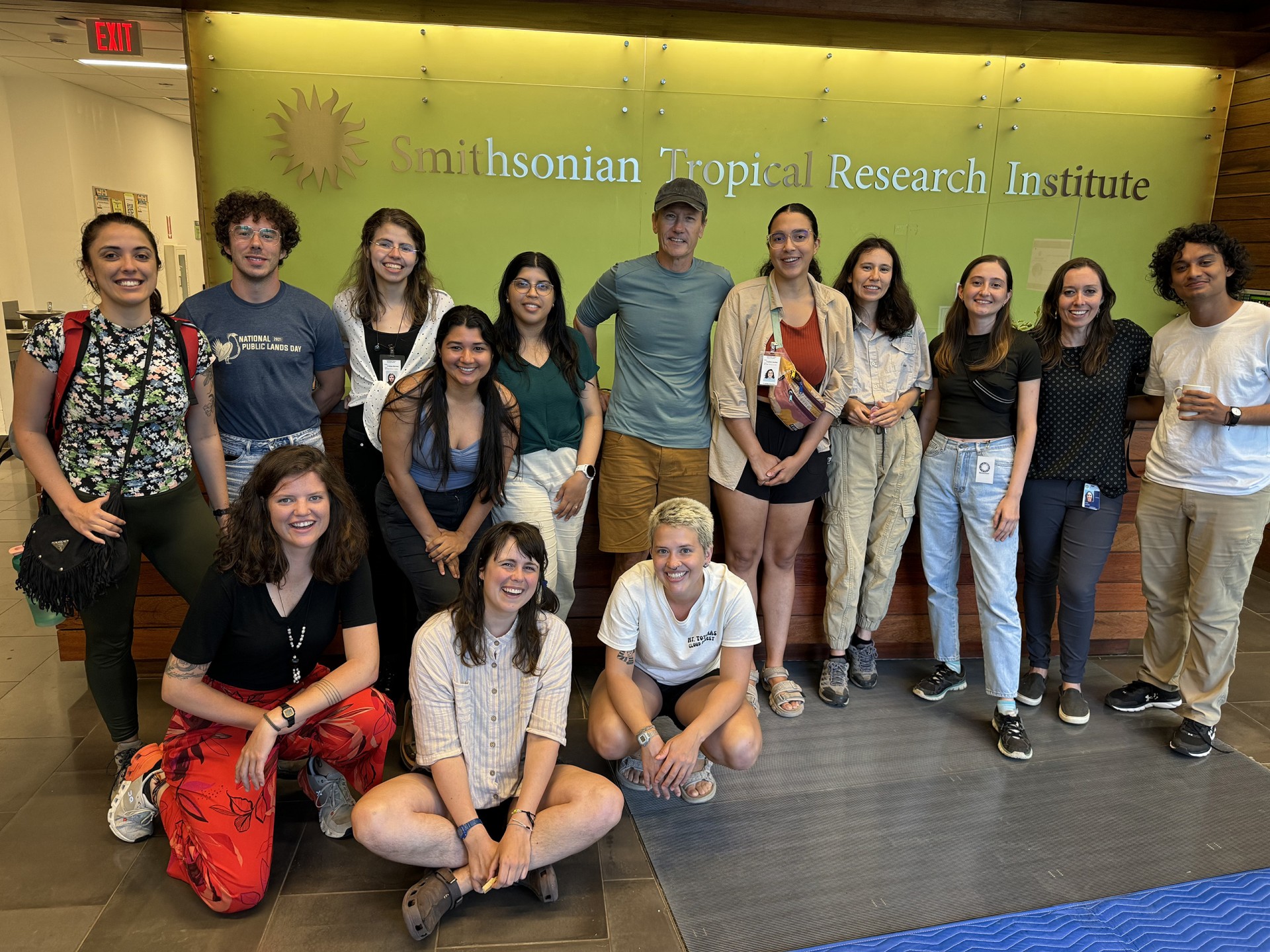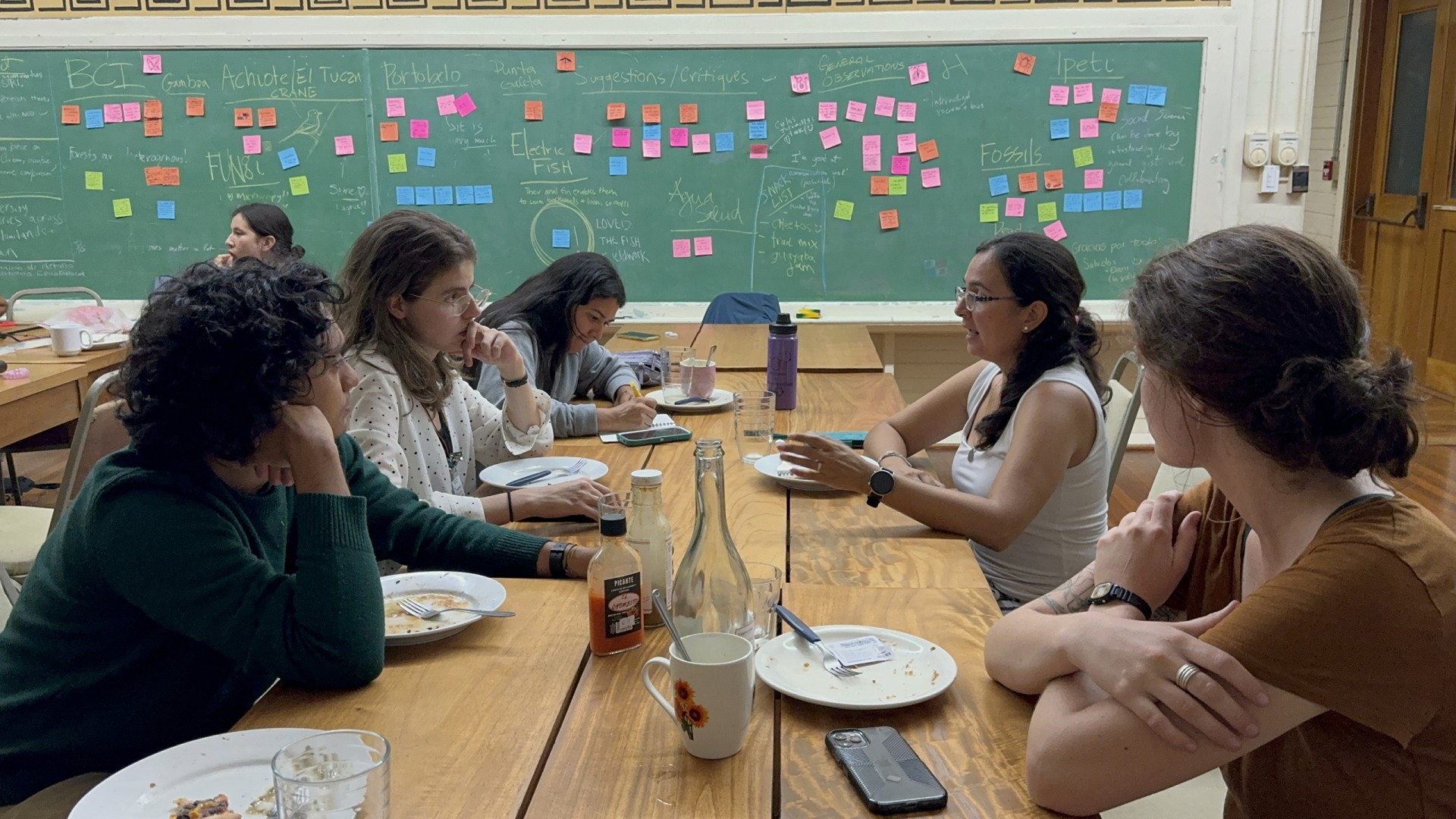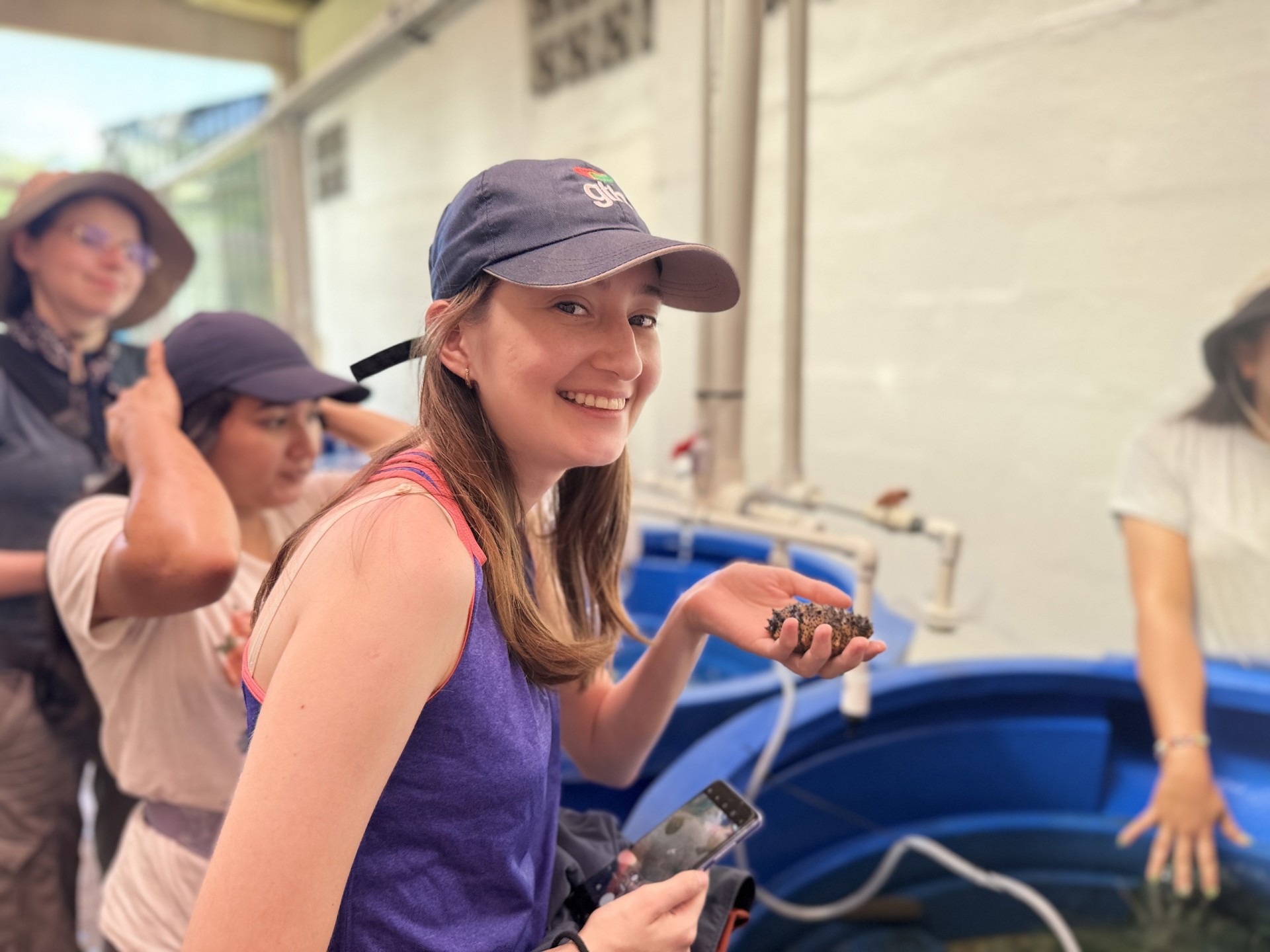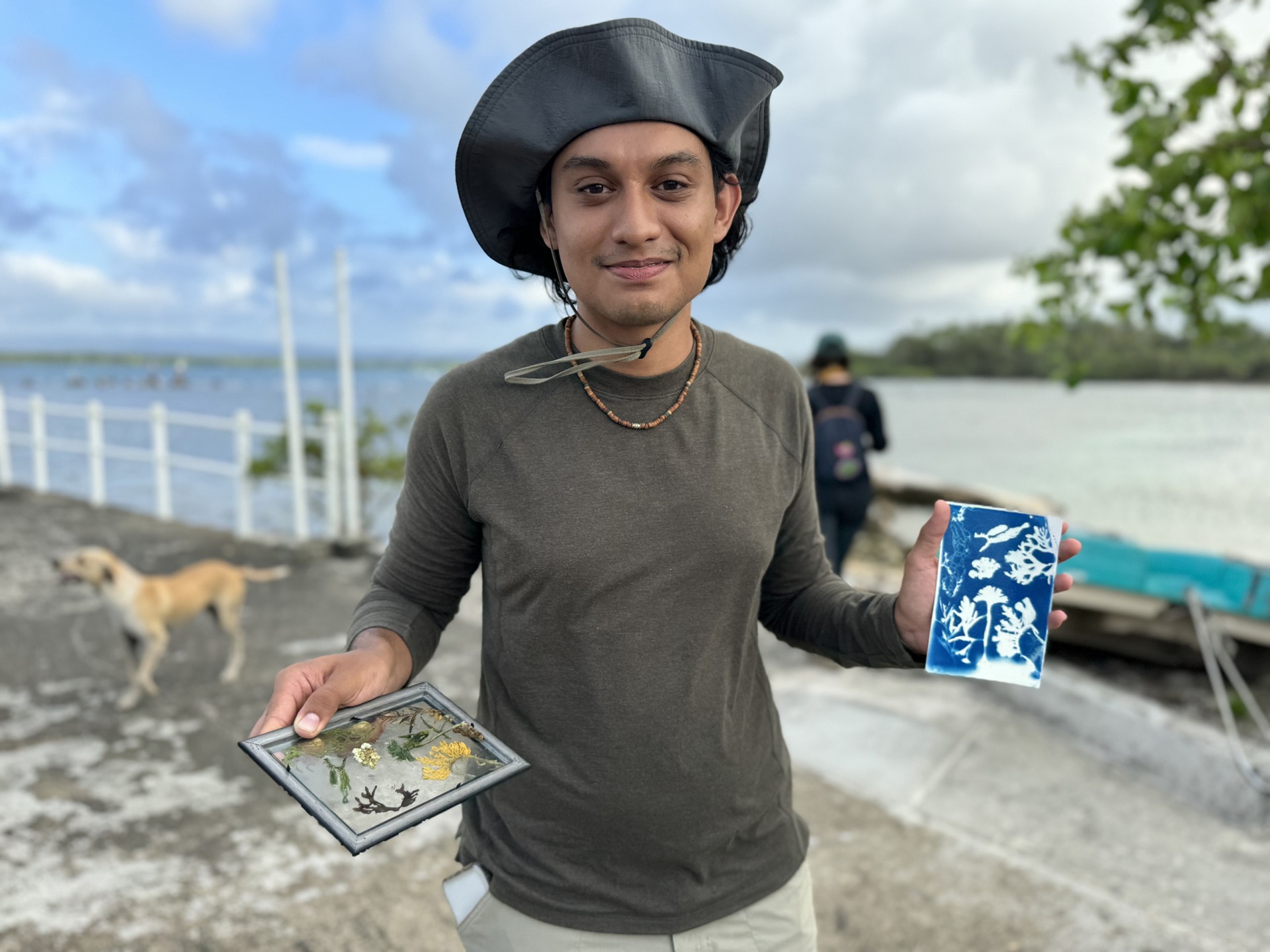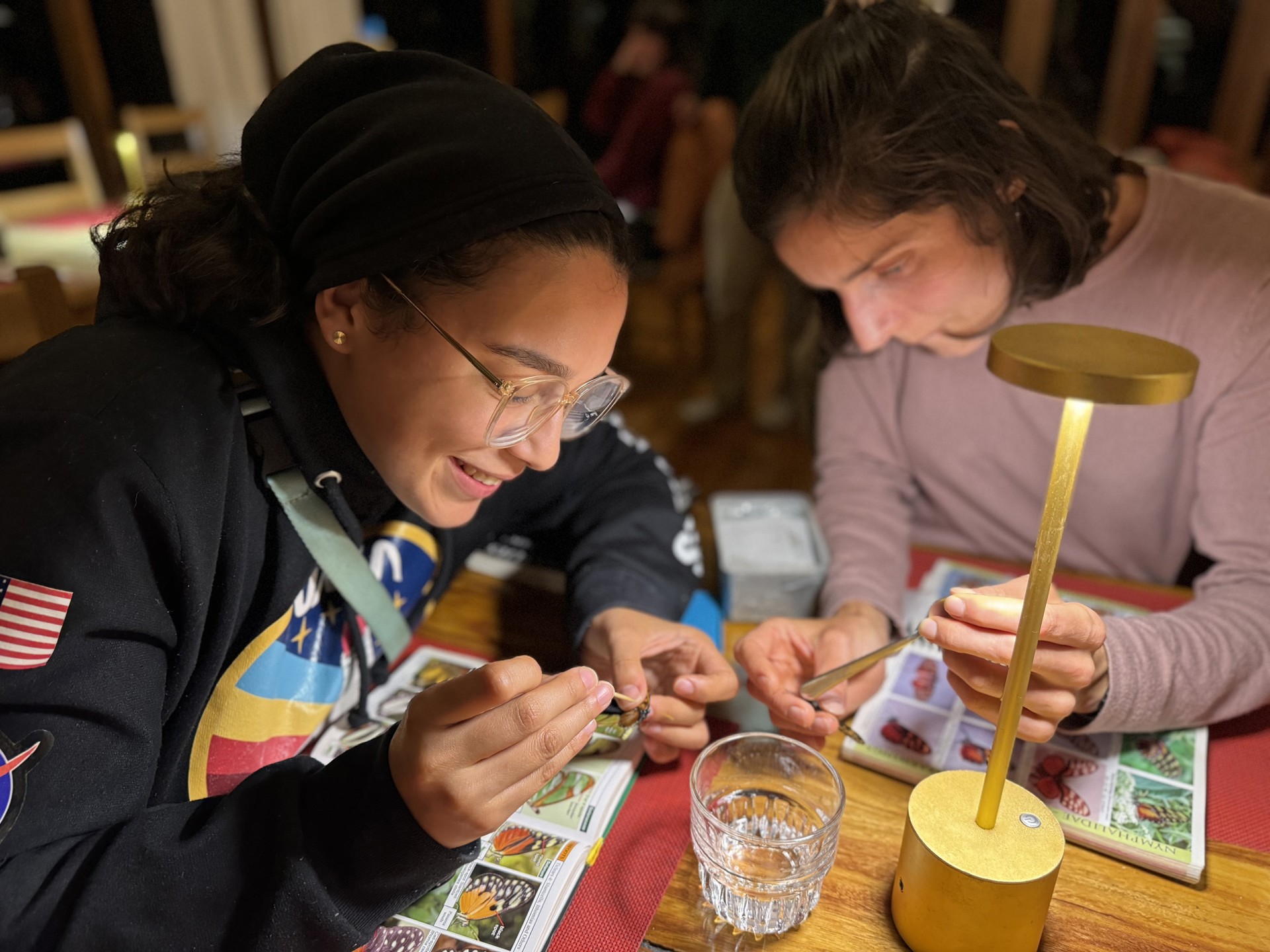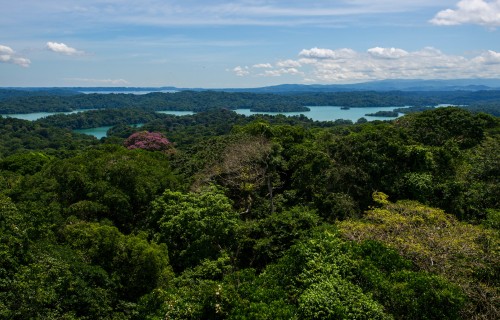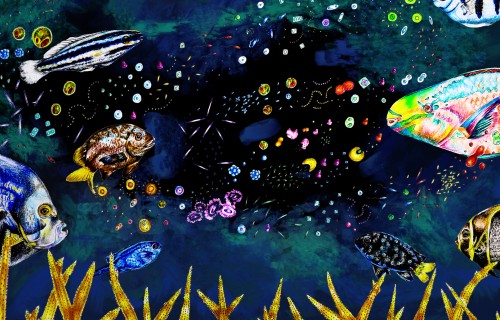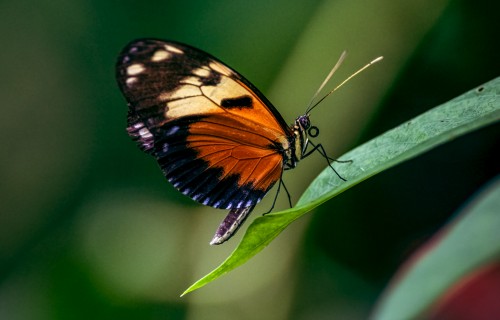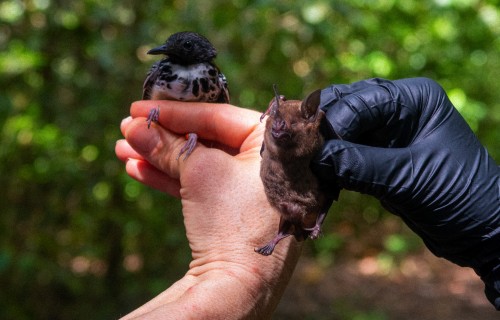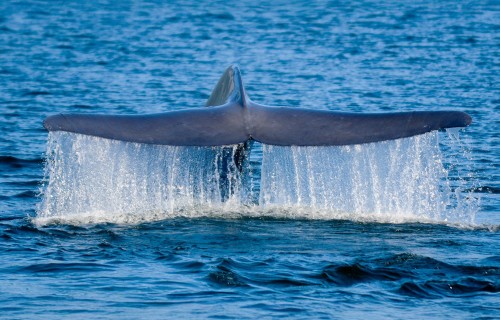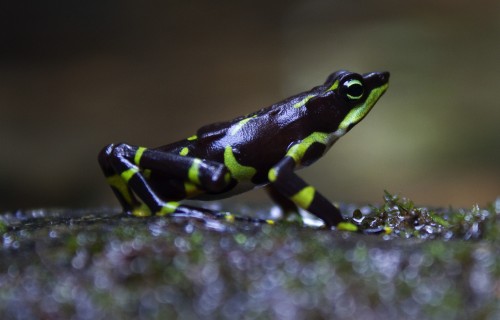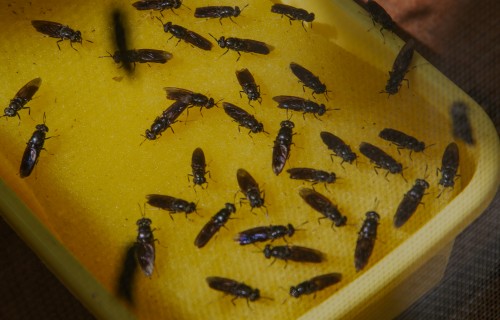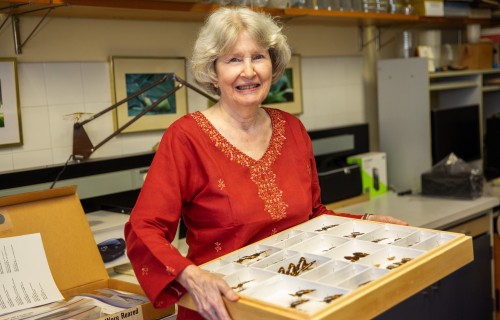Smithsonian science helps understand blue whale migratory and foraging patterns to inform conservation strategies
Entangled
STRI-McGill field course weaves together natural history, social science, tropical ecology, and cultural exchange
Barro Colorado, Gamboa, Galeta, Coibita, Canopy Cranes
Six Latin American students received funding to join the Neotropical Environment Option (NEO) course through the new Social-Ecological Field Science Fellowship
For five weeks in January and February, a dozen students from throughout the Americas met in Panama to learn from the country’s rich biocultural diversity as part of the STRI-McGill Neotropical Environment Option (NEO) program. From the highlands of Chiriqui to the islands of Coiba National Park, students met with coffee farmers and fishermen alike to understand the entangled social and environmental challenges facing the tropics today. For this graduate-level field course, which has evolved over the past two decades, Panama becomes a natural classroom to teach both field biology and environmental policy.
The 2024 STRI-McGill Neotropical Environment Option (NEO) Field Course students pose with STRI Dean of Academic Programs Owen McMillian and instructor Holly Cronin following final presentations at STRI’s Gamboa Laboratories.
Credit: Holly Cronin
Of the twelve students participating in the course this year, six were master’s and doctoral students enrolled in McGill University’s NEO program, which operates in close collaboration with STRI; the other six were not enrolled at McGill, but participated as STRI’s first cohort of Social-Ecological Field Science Fellows. Recent graduates from universities in Panama, Nicaragua, Colombia, Costa Rica and Bolivia, these Fellows had expenses for participation in the course funded by the Islas Secas Foundation and STRI. “We have developed this unique field-based program to study human-environment relationships as complex systems and want to expand the reach and benefits to students beyond McGill,” said Holly Cronin, who is one of the NEO instructors along with Jarrod Scott and Benita Laird-Hopkins.
There is a long tradition of Latin American student involvement in the NEO program; several Panamanian students who have participated in previous NEO courses have even continued on to pursue graduate study at McGill through the NEO program. But this year’s six Social-Ecological Field Science Fellows have additional benefits beyond just the NEO field course: they each receive funding and mentoring to complete a three-month internship or short-term fellowship at STRI. “Not only do they gain experiential learning and rigorous training in field and lab components of tropical sciences, but we also provide ongoing support for Fellows with practical guidance on developing graduate research proposals and navigating international academic institutions,” said Holly. She’s excited for future iterations of the course to continue to offer valuable experiential learning while also “creating opportunities for a diversity of students from across Latin America to have meaningful engagement with STRI.”
Fellows Saúl Fernandez Rodriguez Salgado, Cristina Herrera González, and Dineilys Aparicio Villarreal and McGill doctoral student Katie Nelson meet with Catalina Gomez of the Islas Seas Foundation over dinner at STRI’s Gamboa Schoolhouse.
Credit: Holly Cronin
Master’s student Fiona Madsen and Fellow Analida Quiel Arauz wait to be lifted 52 meters high by the Sherman canopy crane in Parque Nacional San Lorenzo.
Credit: Holly Cronin
Owen McMillian, STRI’s Dean of Academic Programs, enthusiastically supports the NEO course in its newest iteration and views it as STRI’s flagship academic offering. Owen said that while the program has always centered around the study of both biology and environmental policy, the two topics used to be taught as discrete courses. Recent curriculum redesigns, in addition to the inclusion of the cohort of Latin American students not enrolled at McGill, have prioritized interdisciplinary study and research. The program also aims to further STRI’s relationship-building within the region and help build capacity for the next generation of researchers in Latin America. “It’s a great opportunity to merge the two visions,” said Owen.
Analida Quiel Arauz, a Panamanian environmental engineering student, worked as a climate change consultant at the United Nations Environmental Programme before joining the course. Analida had always been interested in terrestrial ecology, but didn’t think much about marine life until she went snorkeling for the first time with the NEO course. Her newfound fascination will be a jumping-off point towards more experiences in marine studies. For Costa Rican law student Cristina Herrera González, the NEO course helped solidify her understanding of the interconnectedness between social and environmental issues in the Neotropics. Currently working as a legal assistant at a public defender’s office in San Jose, Cristina said that learning more about tropical biodiversity and policy helped “reorient my approach to my field.” She’s eager to use what she’s learned to further human rights and environmental conservation in the region.
Fellow Cristina Herrera González and instructor Jarrod Scott inspect a fallen leaf on Barro Colorado Island.
Credit: Holly Cronin
Teaching assistant Maycol Madrid shows Fellows Dineilys Aparicio Villarreal and Saúl Fernandez Rodriguez Salgado how to examine marine microalgae on the Caribbean coast.
Credit: Holly Cronin
Dineilys Aparicio Villarreal, another Panamanian student, works as a high school biology teacher in Panama’s remote Darién province. She is eager to share the knowledge she gained from the course with her students, along with new teaching tools and educational styles. Dineilys appreciates the Fellowship’s intention to subvert the financial, resource, and language barriers that have historically made it difficult for Latin American students to participate in research projects. She said Owen and the program team are “trying to break these barriers; it’s important for [Latin American] students to be able to have this experience.”
From once being a doctoral student in the course to now teaching it, Holly also appreciates how engagement between cohorts of NEO graduate students and Social-Ecological Field Science Fellows can expand opportunities for exchange and transform the conversations the group is able to have. Other McGill NEO students feel similarly. Kelsey Wilson, a Canadian master’s student, reflected that some of the most enriching moments for her were sharing stories with her Latin American classmates. “Everyone in the class was from really different backgrounds: we had lawyers, environmental engineers, and teachers. It was an interesting mix of perspectives, both culturally and work-wise.” Kelsey says the students also bonded through shared experiences. “We bonded as a group over personal themes, too, like queerness, career changes, following our dreams, and how we can be there to support each other…Taking the course with the Latin American students was amazing, and truly necessary.”
Fellow Ana Maria Höhler poses with a young sea cucumber during a visit to PanaSea’s aquaculture facility on the Caribbean coast.
Credit: Holly Cronin
Fellow Saúl Fernandez Rodriguez Salgado shows his cyanotype made as part of a study of herbarium resources and seaweed diversity at Punta Galeta Marine Laboratory.
Credit: Holly Cronin
Fiona Madsen, a McGill master’s student, thought the exchange brought a unique viewpoint to the course. Speaking of the Latin American students broadly, including those enrolled in McGill’s NEO program and the Fellows, Fiona said they “offered so much knowledge on the neotropics, as well as the history of Panama and surrounding countries.” The students discussed the imbalance of opportunities and resources available to Latin American versus North American students, and had thoughtful conversations about race, international research, and the communities the course visited. For Ana Maria Höhler, a Fellow from Bolivia, the cultural and intellectual exchange was also a meaningful part of the experience. “I met wonderful people from diverse parts of the world, with different visions and ideas about the environmental problems experienced in Latin America. We were able to…expand our understanding of the challenges we face as citizens and scientists.”
Saúl Fernandez Rodriguez Salgado, who’s finishing up his bachelor's degree from a university in Nicaragua, studies small-scale marine fisheries off the country’s Pacific coast. Through the Social-Ecological Field Science Fellowship, he’s been able to take part in labs that weren’t available to him during his biology studies. Before the course, and prior to meeting the McGill students and others from Latin America, he was feeling discouraged about continuing with a career in science. “I felt like I was in a cave; this [course] opened a new world to spark my curiosity.”
Fellow Catalina Sánchez learns how to feed butterflies alongside instructor Benita Laird-Hopkins at the Mount Totumas Cloud Forest.
Credit: Holly Cronin
For Saúl and Colombian student Catalina Sánchez, building relationships and camaraderie with their Latin American classmates was one of the most meaningful aspects of the course. Through sharing distinct but similar issues from each of their countries, she said the connection between many of the social and ecological issues clicked for them. In her final presentation, Catalina explained her experience with this metaphor: “Participating in this fellowship was like getting a stack of magazines, and now I have scissors to make a collage.” Within the program’s first few months, the Social-Ecological Field Science Fellowship has opened up a world of possibility for Catalina and her classmates to piece together new visions for the future.

